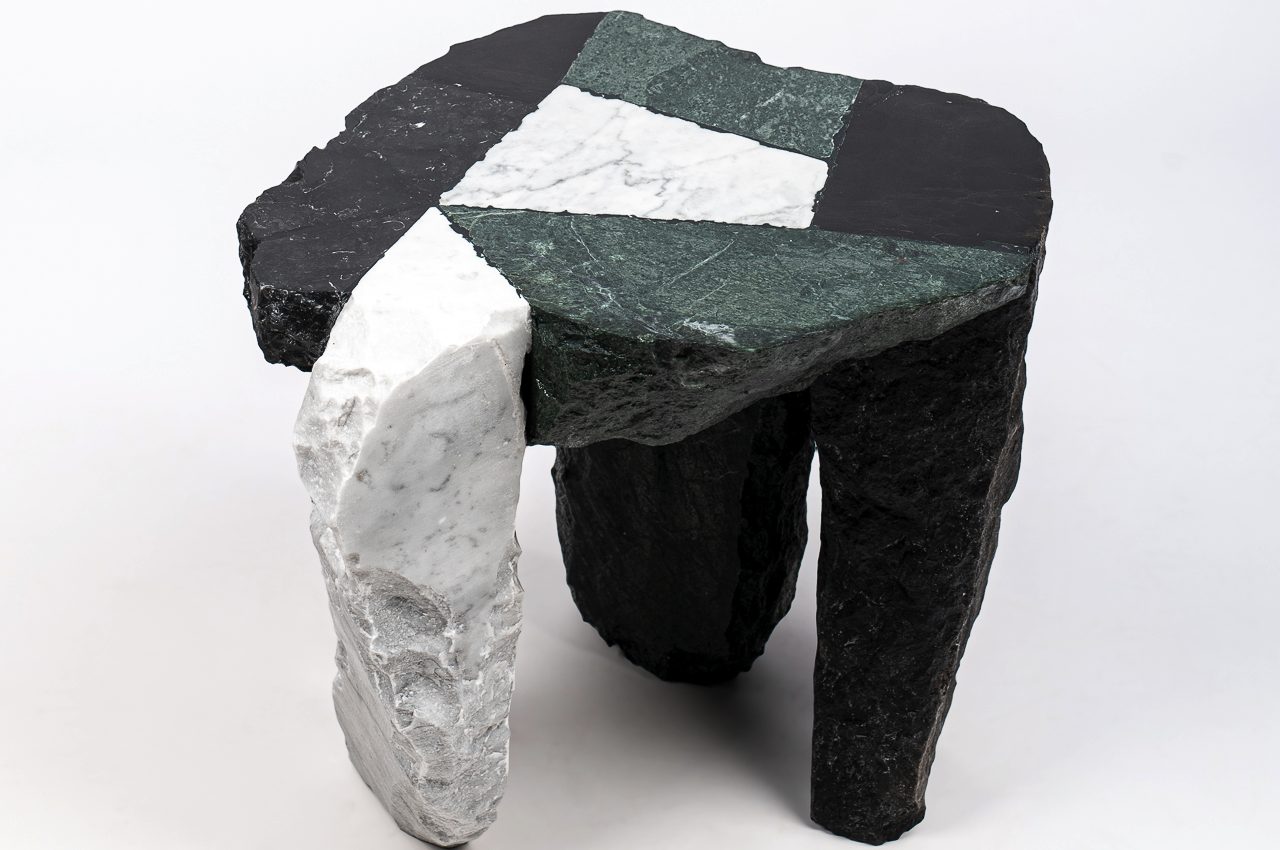
Miscellaneous is a word that means a collection of various random things. It is a term used to describe items of different characteristics grouped in one. People don’t usually pay attention to it, but every article is deemed necessary.
The Miscellaneous Side Table got its name from the idea of being varied in form and shape. Waste fragments have been collected from marble sculptures. Some of them resulted in beautiful forms that are stunning. The side table from this collection is unique, so you’re getting something that is uniquely yours.
Designers: Chiara Pellican and Edoardo Giammarioli (Millim Studio)
The materials are different types of marbles and stone—Udaipur marble, Carrara marble, Marquina marble, and Arenaria stone. The aesthetics appear to be grand and luxurious. No two side tables would be alike because of the unique shape and form of the scrap marble.
Right now, there is only one Miscellaneous Side Table. It’s unique in every sense since it is asymmetric, looking like an artistic sculpture. Millim Studio introduced the side table by co-founders and designers Chiara Pellicano and Edoardo Giammarioli. Using leftover materials from sculptures, a new table is made and looking every inch a masterpiece.
The designers have been researching and exploring new ways to express themselves in their work. As a creative duo, they were able to take advantage of nature in its most natural form and came up with something that is more useful. Since waste marble fragments are used, this can be considered a sustainable effort. More side tables like this must be created for people who like “variety” and one-of-a-kind furniture pieces.
Millim Studio is an Interior Design Studio based in Rome, Italy. This particular studio explores the concept of beauty and creates “experiences between art, communication, culture, and design.” The studio also provides value to time and research by creating innovative and unique processes.
This side table uses different types of materials that show different colors and textures. Some parts are smooth while some areas appear to be rugged. The raw aesthetics are seen on the final sculpture as the designers decided the material would influence the design process. Describing the concept behind the design, Millim Studio used a quote from Salvatore Settis’ book The Future of the ‘Classical’: “The fragment has in itself an invincible necessity, the germ of something, something that is worth more than a meaning, the obsessive urge to be completed, the peremptory eloquence of the incomplete.